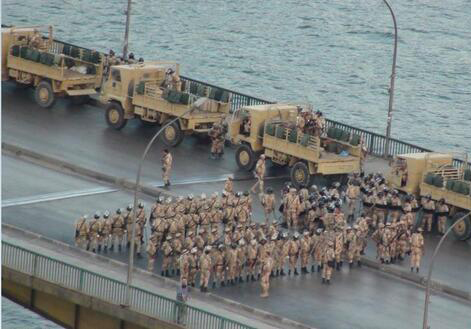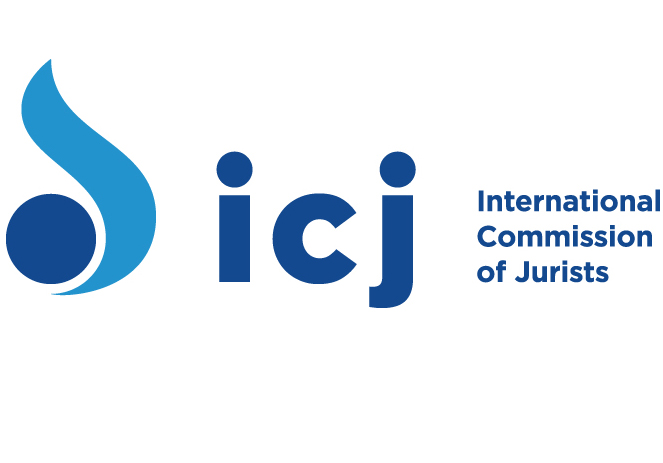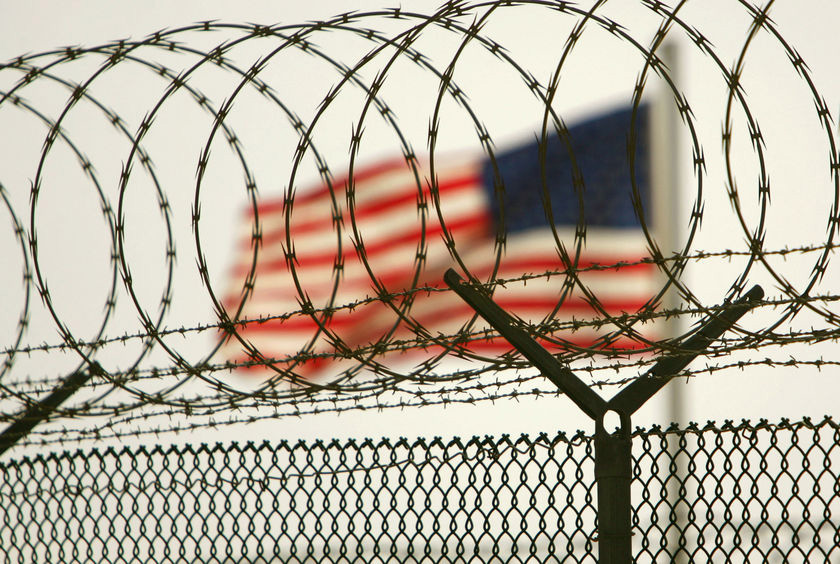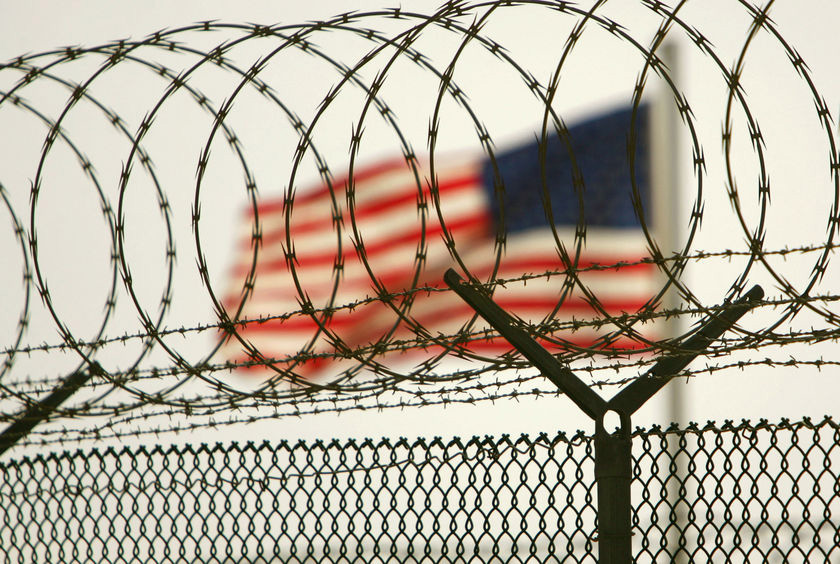
Sep 4, 2013 | News
The ICJ calls on Egyptian authorities to conduct a thorough, effective, independent and impartial investigation into the unlawful and excessive use of force by security and armed forces, in particular during the dispersal of the Rabaa Al-Adawyia and Annahda pro-Morsi sit-ins on 14 August.
The statement comes as the ICJ concluded a high-level mission on 29 August to assess the human rights and rule of law situation in Egypt following the ouster of President Mohamed Morsi by the armed forces.
The use of live ammunition to disperse the sit-ins and against pro-Morsi protesters has resulted in the deaths of more than 1000 individuals, most of which appear to amount to unlawful killings.
The investigation should also examine violent attacks by some pro-Morsi supporters, including the use of firearms, against security officers, police stations, and bystanders, and attacks on religious minorities, in particular Christians, their churches, buildings, and homes.
“The Egyptian authorities should investigate the unlawful use of live ammunition against protesters with a view to holding the perpetrators to account, providing remedy and reparation to the victims, and ending the impunity the security and armed forces have enjoyed over human rights abuses,” said ICJ Commissioner Kalthoum Kennou. “In policing demonstrations, security must act to safeguard the right to life, in particular by ensuring that the decision to use lethal firearms is made only when strictly unavoidable in order to protect life.”
The ICJ is also concerned that following the crackdown, thousands of people were arrested under conditions that violate due process guarantees, in particular the rights to have access to a lawyer and to family members.
Hundreds are also reportedly missing and the ICJ fears many of them have been subjected to enforced disappearance.
Hearings for renewing pre-trial detentions orders are conducted in prisons and, as a result of the large number of detainees, most are either not represented by legal counsel, or are not able to have access to and to consult with their lawyers. Many of the detainees are being held arbitrarily under administrative detention, the ICJ further notes.
“The Egyptian authorities must ensure the rights of those arrested to liberty, security of person, to have access to lawyers and family members and to challenge the lawfulness of their detention, ” said ICJ Commissioner Shawan Jabarin ” the Egyptian authorities must fully communicate the list of all the detainees, their places of detentions and the fate and whereabouts of the hundreds who are reportedly missing. They must also comply with their legal obligations under international law and ensure that no one is subjected to enforced disappearance.”
The Office of the Public Prosecutor has charged thousands of individuals who were arrested following the ouster of president Morsi and the dispersal of the sit-ins, including with “ attempted murder”, “opposing authorities”, “attacking law enforcement officials”, “causing disorder”, “blocking roads” and “throwing Molotov cocktails at the police”.
The office also charged President Morsi and his advisers, including leaders of the Muslim Brotherhood, with, among other charges, “inciting followers to commit premeditated murder, use of force, use of firearms and illegal attacks on authorities.”
Moreover, seventy-five judges who called for the reinstatement of former President Morsi have been investigated by an investigating judge, appointed by the Minster of Justice, for “backing a particular political party and deviating from judicial traditions and its values of neutrality, impartiality and non-partisanship.”
The ICJ notes, however, that neither the Office of the Public Prosecutor nor the Minister of Justice have so far investigated, ordered the investigation, or brought criminal action for the unlawful killings of protesters by armed and security forces following the ouster of President Morsi.
In meetings with the ICJ delegation, state officials, including the Minister of Justice, argued that the use of live ammunition and lethal force to disperse sit-ins was legitimate and in line with both national and international standards.
“In times of crisis, judges and prosecutors must safeguard and uphold the rule of law, not curtail the enjoyment of fundamental rights and freedoms,” said Said Benarbia, ICJ Senior Legal Advisor for the Middle East & North Africa Programme.
“The Egyptian authorities must therefore ensure that the Office of the Public Prosecutor and courts are not politicized or used as a means to crackdown on political opponents and protesters, or to shield armed and security officials responsible of human rights abuses from accountability,” Benarbia added.
Contact:
Said Benarbia, ICJ Senior Legal Adviser of the Middle East and North Africa Programme, tel: 41 22 979 38 17, e-mail: said.benarbia(a)icj.org
Additional information:
The ICJ delegation was led by Justice Kalthoum Kennou, judge at the Tunisian Cassation Court and ICJ Commissioner, and Mr. Shawan Jabarin, ICJ Commissioner and General Director of Al-Haq, an ICJ affiliate in the occupied Palestinian territories. The delegation met with Minister of Justice Adel Abdelhamed Abdullah, Minister of Transitional Justice and National Reconciliation Amin El Mahdi, members of the judiciary, including President of the Judges Club Ahmed El Zend, lawyers, civil society, and families of victims of human rights violations after the dismissal of former President Mohamed Morsi.

Aug 29, 2013 | News
The Pakistani government should affirm its commitment to end enforced disappearances by ratifying the International Convention for the Protection of All Persons from Enforced Disappearance.
The call by the ICJ and Human Rights Watch comes on the eve of the third annual United Nations International Day of the Victims of Enforced Disappearances (30 August 2013).
“Ratifying the Convention against Disappearances is a key test for Prime Minister Nawaz Sharif’s new government,” said Ali Dayan Hasan, Pakistan director at Human Rights Watch. “The government would send a clear political message that it’s serious about ending ‘disappearances’. And it would show its commitment to ensuring justice for serious human rights violations.”
Pakistan’s participation in the United States-led “war on terror” since 2001 has resulted in hundreds and perhaps thousands of individuals being “disappeared.”
In addition to those arbitrarily detained in counter-terrorism operations, journalists, human rights activists and alleged members of separatist and nationalist groups, particularly in Balochistan province, have been and continue to be forcibly disappeared.
“Pakistan’s failure to hold even a single perpetrator of enforced disappearances to account perpetuates the culture of impunity in Pakistan,” said Sam Zarifi, Asia-Pacific Regional Director of ICJ. “The prevalence of gross violations of human rights in the country today is partly a legacy of this impunity.”
Despite repeated denials by Pakistan’s security agencies, the Supreme Court of Pakistan has acknowledged and human rights groups have documented evidence of the involvement of intelligence and security agencies in enforced disappearances.
In July, Pakistan’s attorney general admitted that more than 500 “disappeared” persons are in security agency custody.
“In Balochistan and beyond, Pakistani security forces have forcibly disappeared, tortured, and unlawfully killed people in the name of counter-terrorism,” Hasan added. “Pakistan has a responsibility to arrest and prosecute militants acting outside the law, but abuses against suspects cannot be explained away as a way to end terrorism.”
“All disappeared persons must be released or, if charged with recognizable crimes, brought without further delay before a court to see if their continuing detention is legal,” Zarifi concluded. “The government should also fully investigate and prosecute those who are responsible for ordering, participating or carrying out enforced disappearances.”
The UN Working Group on Enforced or Involuntary Disappearances in its 2012 report on Pakistan found that the country’s anti-terrorism laws, in particular the Anti-Terrorism Act 1997, and the FATA/PATA Action (in aid of civil powers) Regulations 2011, allowed arbitrary deprivation of liberty, which has enabled enforced disappearances.
Under international law, a state commits an enforced disappearance when its agents take a person into custody and then deny holding the person, or conceal or fail to disclose the person’s whereabouts.
Family members and legal representatives are not informed of the person’s whereabouts, well-being, or legal status.
“Disappeared” people are often at high risk of torture, a risk even greater when they are detained outside of formal detention facilities such as prisons and police stations.
An enforced disappearance removes an individual from the protection of the law, leaving the individual without protection from theirs.
It violates many of the rights guaranteed under the International Covenant on Civil and Political Rights, which Pakistan ratified in 2010.
The UN General Assembly has repeatedly described enforced disappearance as “an offence to human dignity” and “a grave and flagrant violation” of international human rights law.
The ICJ and Human Rights Watch called on the Pakistani government to carry out a full review of security-related legislation and ensure that all laws conform to Pakistan’s international law obligations to prevent such violations.
Contact:
Sam Zarifi, ICJ Asia-Pacific Regional Director, t: +66 807 819 002 (mobile); email: sam.zarifi(at)icj.org
Read also:
Justice for Pakistan’s “disappeared”

Jun 12, 2013 | Agendas, Events
On Tuesday 11 June 2013, the ICJ convened a parallel event, organised with the Geneva Academy of International Humanitarian Law and Human Rights, during the Human Rights Council’s 23rd regular session held in Geneva.
The event, held in Room XXV of the Palais des Nations, discussed how human rights will be promoted by the Arms Trade Treaty (ATT), including ways to ensure compliance with the ATT and the relevance of the treaty for activities of the Human Rights Council and international human rights experts. The event was chaired by Alex Conte, Director of the ICJ’s International Law and Protection Programmes. Panelists were Simon Bagshaw, Senior Policy Adviser for the UN Office for the Coordination of Humanitarian Affairs; Professor Andrew Clapham, Director of the Geneva Academy of International Humanitarian Law and Human Rights; and Dr Stuart Casey-Maslen, Head of Research at the Geneva Academy of International Humanitarian Law and Human Rights.
Simon Bagshaw provided a background to the treaty from a humanitarian perspective, recognising that the ATT provides an opportunity to address some of the humanitarian impacts and costs of the arms trade. He also stressed the importance of specific elements within the treaty, such as the obligation to refrain from authorising the transfer of weapons where a substantial risk exists that this may result in serious violations of international human rights law or international humanitarian law.
Andrew Clapham and Stuart Casey-Maslen focussed on the human rights perspective. Professor Clapham promoted the use of mechanisms such as the Human Rights Council and its Universal Periodic Review to assist in implementation of the treaty. Dr Casey-Maslen discussed areas that may help ratification, implementation and monitoring of the ATT, including the role of civil society in that regard.
Several questions were raised during discussions concerning how the treaty would work in practice and its broader implications for non-State actors. Panellists confirmed that the ATT includes the facilitation of crimes as enumerated in the treaty and may also cover domestic crimes of terrorism. Since the ATT does not provide for the establishment of fact-finding missions, it was emphasised that civil society will need to act to monitor compliance with the ATT. Panellists also pointed out the important role of the treaty regarding the conduct of non-State actors. Although the treaty sets out obligations for States only, States parties will be responsible for providing licensing to arms manufacturers and private companies working within the weapons industry.
UN HRC-Arms Treaty side event flyer-event-2013 (event flyer in pdf)









